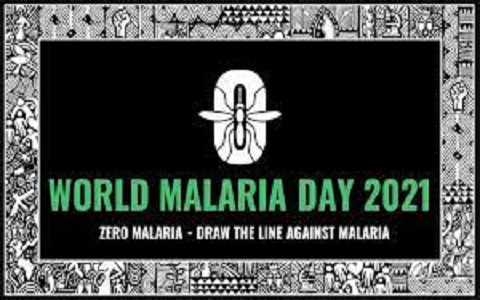

Malaria is a life threatening disease caused by parasites that are transmitted to people through the bites of infected female anopheles mosquitoes.
The scourge is said to account for tens of thousands’ of deaths annually.
For example, according to the World Health Oraganisation, W.H.O report, four hundred and nine thousand died of the disease in 2019 with another estimated two hundred and twenty nine million cases of malaria worldwide.
Malaria is the 3rd leading cause of death for children under five years worldwide, after pneumonia and diarrhea.
It causes severe flu-like symptoms such as high fever, vomiting and muscle pain.
It is however preventable and curable but if left untreated can quickly develop into life threatening conditions such as organ failure, often leading to death.
It is a major public health problem in Nigeria where it accounts for more cases and deaths than any other country.
According to the Nigeria malaria fact sheet, there are estimated 100 million malaria cases with over 300,000 deaths per year, while malaria also contributes to an estimated 11 percent of maternal mortality.
World Health Organisation report indicates that most cases of malaria occur in Sub-Saharan African, South East Asia, Western Pacific, Eastern Mediterranean, and the Americas are most at risk.
It is instructive to note that contracting malaria is often a function failure on the part of people to adhere to rules of hygiene, especially in relation to the environment.
Anopheles mosquitoes are known to lay their eggs in water and these eventually hatch into larvae and later adult mosquitoes.
Quite unhygienic practices of people provide the breeding ground for this growth, and these occur as a result of allowing stagnant waters around homes, unclear drainages, leaving around disused cans, bowls, where water settles.
Grasses left un-weeded and un-cleared bushes are also fertile ground for growth of mosquitoes.
Over the years, there have been concerted efforts to educate people on avoidance these unhygienic practices including other malaria eradication measure such as the use of insecticide treated net and inside residual spraying.
Hence, World Malaria Day which takes place on the 25th of April each year, is an internationally recognized day to raise awareness about malaria prevention and highlighting the global efforts to control malaria and celebrating the gains that have been made so far.
This year’s theme which is ‘Zero Malaria-Draw the Line Against Malaria’ is to highlight successes of countries in the fight against malaria, inspire a new group of countries that have the potential to eliminate the disease by 2025 and demonstrate that zero malaria is within the reach of all countries.
According to the World Health Organisation in 2018, twenty seven countries worldwide reported fewer than 100 cases of malaria and are on track to become malaria free over the next few years.
In 2018, Uganda reported 1.5 million fewer cases compared to the year before while india reported 2.6million fewer case over the same time period.
In 2020, it was reported that 1.5 million cases and 7.6 million deaths have been averted in the last two decades due to the global response and control of the disease.
Nigeria has also not lagged behind in the crusade to stem the tide of deaths from malaria.
Despite this achievement, government would still have to do more to ensure the number of Nigerians subjected to the scourge of malaria is drastically reduced.
Above all, militating elements such as lack of political will, drug resistance, poor funding and global warming should be tackled with a complete integration of people, resources and policy to achieve the desire target of a malaria free society.
Olusola Otunuga